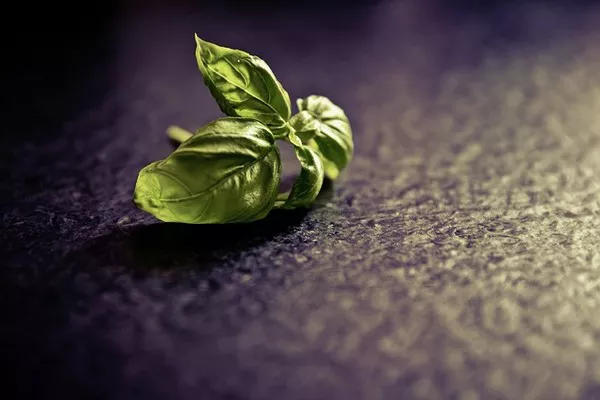Gardening enthusiasts are always on the lookout for natural and cost-effective ways to enhance the health and productivity of their plants. One unconventional yet highly beneficial practice gaining popularity is the use of coffee grounds in the garden. While coffee is a morning ritual for many, its byproduct – used coffee grounds – can serve as a valuable resource for nurturing vegetable plants. In this article, we will explore the advantages of incorporating coffee grounds into your gardening routine and identify which vegetable plants benefit the most from this caffeinated boost.
The Nutrient-Rich Composition of Coffee Grounds:
Before delving into the specific vegetables that thrive on coffee grounds, it’s essential to understand why these discarded coffee remnants are so advantageous for plants. Coffee grounds are a nitrogen-rich organic material that also contains essential minerals such as potassium, phosphorus, and trace elements like copper and magnesium. Additionally, they contribute to soil structure by improving aeration and drainage.
Nitrogen, a vital component for plant growth, aids in the formation of proteins and chlorophyll, essential for photosynthesis. The slow release of nitrogen from coffee grounds promotes a steady supply of this nutrient, benefiting plants over an extended period.
Which Vegetable Plants Love Coffee Grounds:
Tomatoes (Solanum lycopersicum):
Tomatoes are notorious for being heavy feeders, requiring ample nutrients for robust growth and fruitful yields. Coffee grounds provide an excellent source of nitrogen, which supports the development of lush foliage and enhances the overall health of tomato plants. Moreover, the slightly acidic nature of coffee grounds aligns with tomatoes’ preference for a pH range between 6.0 and 6.8.
Peppers (Capsicum spp.):
Similar to tomatoes, peppers thrive in slightly acidic soil and benefit from the nitrogen boost provided by coffee grounds. The gradual release of nutrients ensures a sustained supply, fostering healthy pepper plants and encouraging the production of vibrant, flavorful fruits.
Broccoli (Brassica oleracea italica):
Broccoli, a member of the brassica family, appreciates the nitrogen and phosphorus content in coffee grounds. These nutrients are essential for promoting strong stem development and supporting the formation of the plant’s characteristic large, green heads.
Carrots (Daucus carota):
While carrots primarily require well-draining soil, they also benefit from the addition of coffee grounds. The organic matter in coffee grounds improves soil structure, preventing compaction and ensuring proper root development. Carrots enjoy a nitrogen-rich environment, and the slow release from coffee grounds aligns well with their growth needs.
Lettuce (Lactuca sativa):
Lettuce is a fast-growing leafy green that responds favorably to the nitrogen content in coffee grounds. The additional nutrients contribute to robust leaf development and promote the vibrant, crisp texture that lettuce enthusiasts covet.
Cabbage (Brassica oleracea capitata):
Cabbage plants, like other brassicas, benefit from the nutrient profile of coffee grounds. The nitrogen and trace elements support the formation of large, dense heads, ensuring a bountiful harvest.
Zucchini (Cucurbita pepo):
Zucchini plants appreciate the nitrogen boost from coffee grounds, fostering healthy foliage and encouraging the production of abundant squash. The organic matter also aids in moisture retention, benefiting zucchinis, which require consistent watering.
Tips for Using Coffee Grounds in the Garden:
Composting Coffee Grounds: To maximize the benefits of coffee grounds, consider composting them along with other organic matter. This creates a nutrient-rich compost that can be incorporated into the soil or used as a top dressing for plants.
Moderation is Key: While coffee grounds offer numerous advantages, moderation is crucial. Excessive use may lead to an imbalance in the soil’s pH, potentially hindering plant growth. Aim for a balanced mix of coffee grounds with other compost materials.
Avoid Direct Application to Plants: Coffee grounds should not be applied directly to plants as a thick layer. Instead, mix them into the soil or compost to prevent the formation of a crust that can impede water absorption.
Consider pH Levels: While many vegetables thrive in slightly acidic conditions, it’s essential to monitor the overall pH of your soil. Regular testing will help you adjust the coffee ground application to maintain an optimal growing environment for your plants.
Conclusion:
Incorporating coffee grounds into your gardening routine can be a game-changer for vegetable plants, providing them with a steady supply of essential nutrients. From tomatoes and peppers to broccoli and carrots, a variety of vegetables can benefit from the nitrogen-rich composition of coffee grounds. Byunderstanding the specific needs of each plant and following best practices for application, you can harness the potential of this readily available resource to promote healthy growth and maximize your vegetable harvests. So, the next time you enjoy your morning cup of coffee, consider saving those grounds for the benefit of your thriving vegetable garden.

